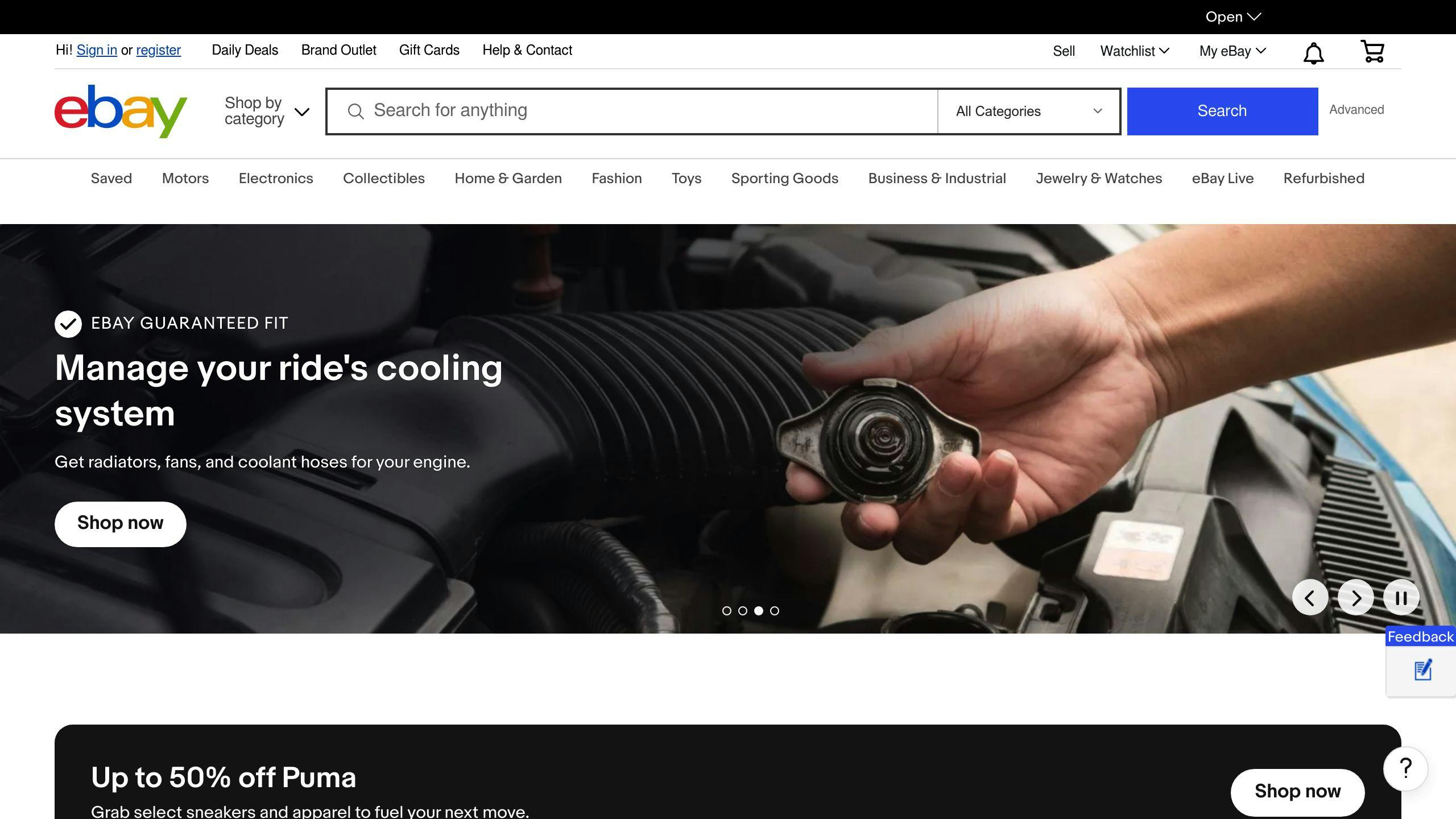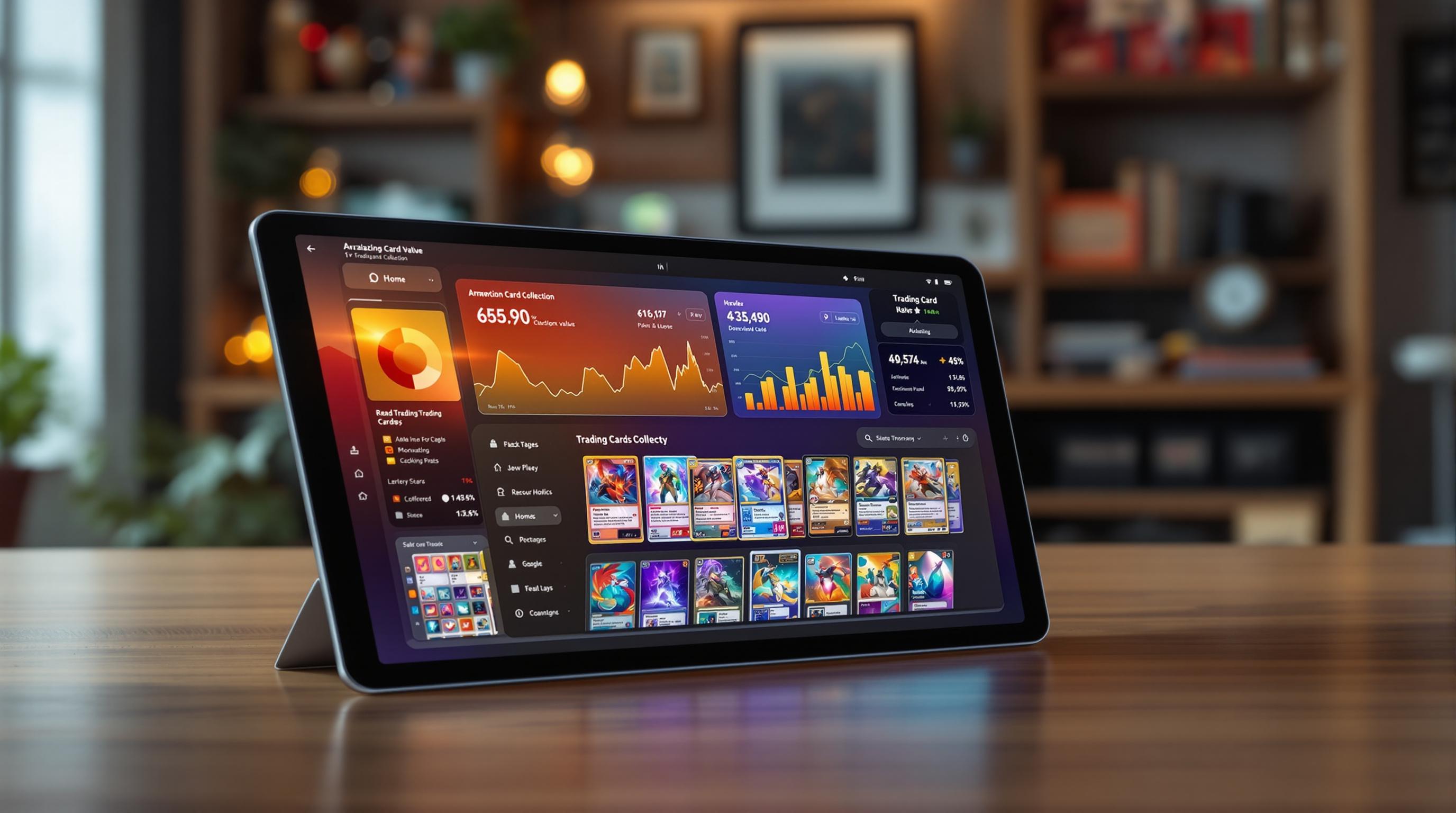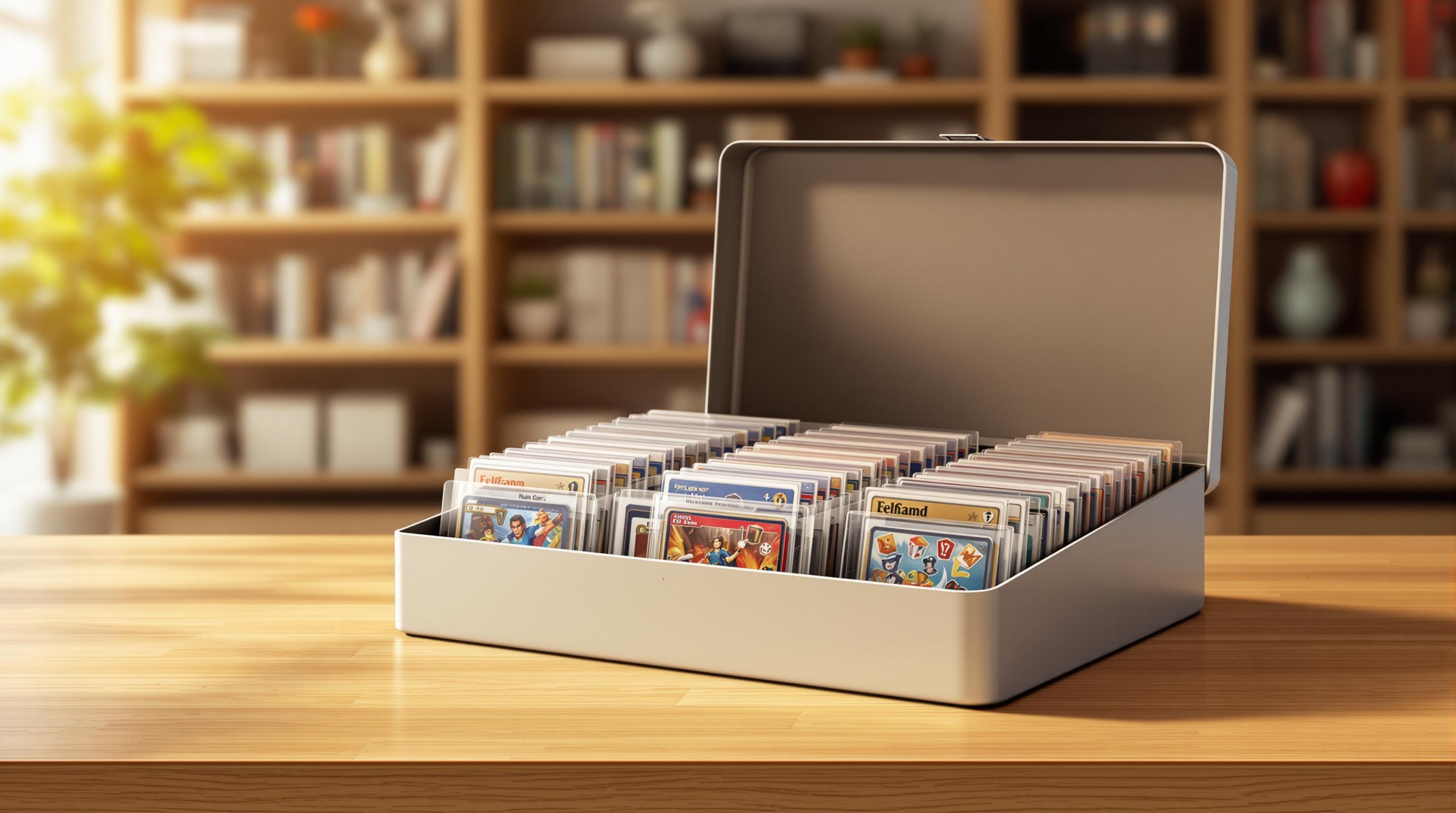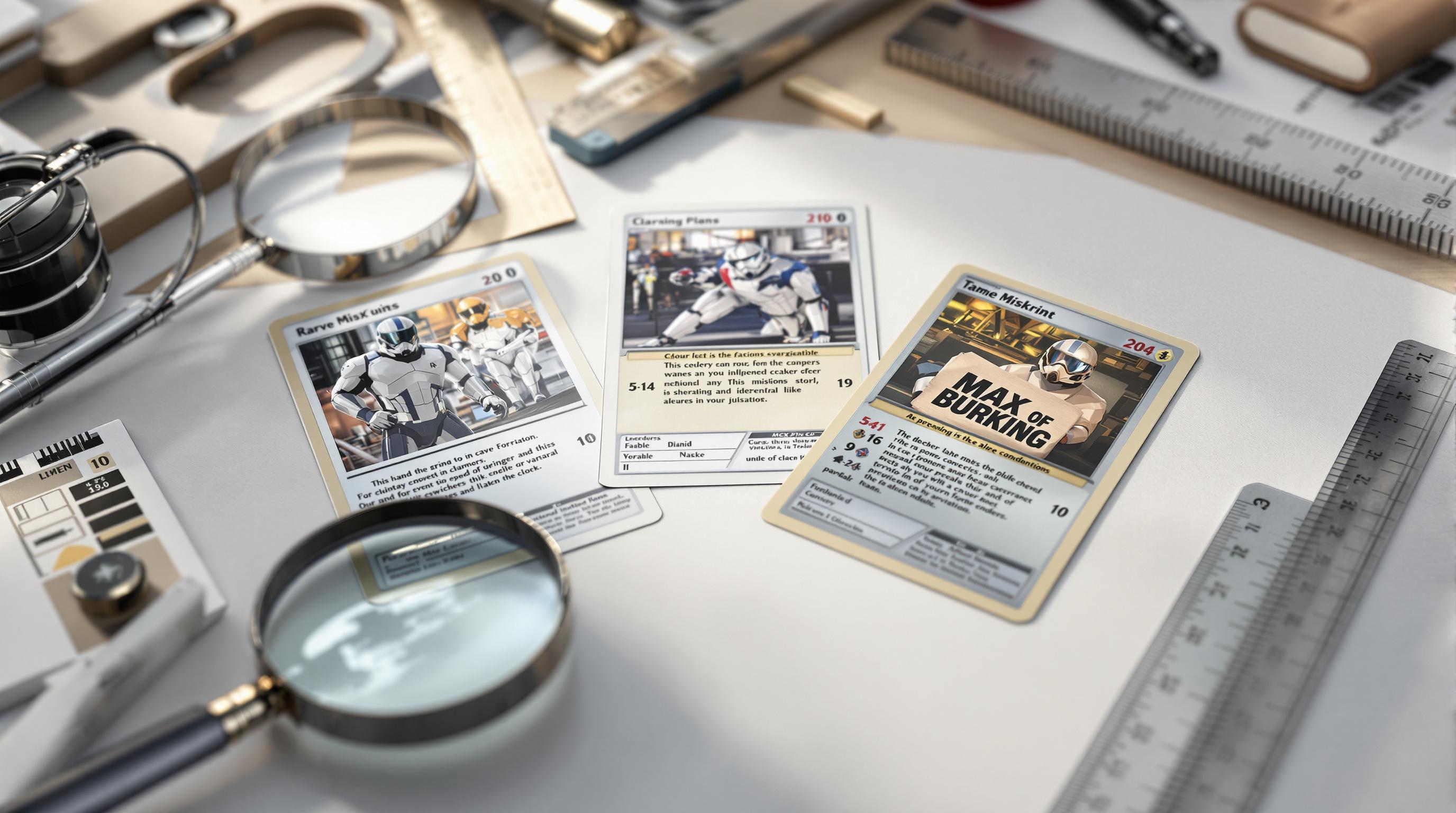Winning vintage card auctions requires more than just a big budget - it’s about strategy, research, and timing. Whether you’re chasing rare sports cards or collectible trading cards, here’s a quick breakdown of the five essential tips to help you succeed:
- Research Thoroughly: Use tools like eBay’s completed sales data and price guides to understand market values and avoid overpaying.
- Set a Bidding Plan: Decide on your maximum bid ahead of time and stick to it to avoid overspending.
- Time Your Bids: Bid early to establish interest and monitor activity, especially during extended bidding periods.
- Spot Overpriced Listings: Compare prices across platforms and look for deals during off-peak hours.
- Use Advanced Strategies: Target auctions ending at odd hours or listings with vague descriptions for overlooked opportunities.
How to Win More Sports Card Auctions on eBay

Understanding Vintage Card Auctions
The world of vintage card auctions blends the charm of traditional auction houses with the convenience of digital platforms. Each type of auction offers its own set of advantages and challenges for collectors chasing rare finds.
Auction Types
Whether you're browsing live events or online platforms, each auction format caters to different needs:
- Live Auction Houses: Venues like Heritage Auctions provide expert authentication and detailed documentation, making them ideal for high-value cards.
- eBay: Known for its global reach and round-the-clock accessibility, eBay is a great choice for mid-range cards.
- Specialty Sites: Platforms like PWCC focus on investment-level cards, offering tools like analytics and secure storage to help serious collectors.
| Auction Format | Key Features | Best For |
|---|---|---|
| Live Auction Houses | Expert authentication, documentation | High-value cards |
| eBay | Global reach, easy access | Mid-range cards |
| Specialty Sites | Analytics, secure storage | Investment-grade cards |
Grading and Rarity
The condition and rarity of a card can dramatically impact its value. Grading services like PSA and BGS assign scores ranging from Poor (1) to Gem Mint (10), with higher grades often adding significant value - sometimes even millions. Beyond grading, factors like limited print runs and historical importance play a major role in determining market demand.
Local card shops can also be a valuable resource for collectors. Many offer grading consultations and market insights. Directories such as Card Shops List help connect you with reputable dealers who can assist with condition assessments and provide tips on navigating the market.
Tip 1: Conduct Thorough Research
Good research is the backbone of successful auction bidding. Knowing market values and understanding card conditions will help you bid smartly and avoid overpaying in competitive situations.
Use Market Tools
Leverage tools like completed sales data on eBay to get a sense of actual market prices. Price guides can also serve as a helpful reference point for determining value. Be cautious about using only current listings, as they often show inflated prices.
| Research Tool | Primary Use | Key Benefit |
|---|---|---|
| Completed Sales | Tracks recent transactions | Provides realistic pricing |
| Price Guides | Offers baseline assessments | Acts as a market reference |
Verify Card Details
Carefully inspect high-resolution photos for issues like corner wear or surface scratches. Review seller feedback and check for authenticity documentation. Reputable sellers will usually provide clear images and respond to questions. If a seller avoids answering, consider it a red flag.
When reviewing raw (ungraded) cards, use a desktop monitor to better identify flaws. Focus on sellers who share clear grading details and quality images. Even within the same grade, card conditions can vary, so pay close attention to the specifics.
Once your research is complete, you’ll be ready to approach bidding with a well-informed strategy.
Tip 2: Develop a Bidding Plan
After researching and identifying the cards you want, the next step is creating a bidding plan. This helps you stay focused, manage your budget, and improve your chances of securing the cards you’re after.
Set a Maximum Bid
Decide on the highest amount you’re willing to bid, considering factors like market value, card condition, and competition. This keeps your spending in check and prevents you from getting swept up in the excitement of an auction.
"The maximum bid feature allows you to maintain your budget and not necessarily get caught up in the 'bidding moment'." - Ryan Friedman, Editor of Auction Report [2]
Bid Early and Keep an Eye on Activity
Start with an early bid to establish your presence and observe how others are bidding. Pay close attention to the auction, especially during extended bidding periods when activity tends to spike. This allows you to spot patterns, seize opportunities, and make smarter decisions without the stress of last-minute bidding.
sbb-itb-0db97a5
Tip 3: Time Your Bids Wisely
Timing your bids carefully can improve your chances of winning in vintage card auctions. A well-thought-out approach can make all the difference.
Understand Extended Bidding
Many auctions use an extended bidding feature, which adds extra time when a bid is placed in the final minutes. This prevents last-second bids from automatically winning and often leads to intense competition as collectors fight for prized cards. To stay ahead, get involved early and keep a close watch during these critical moments when prices can change rapidly.
"Bid early. Within the first day or two of the auction, go through the entire online catalog and place the minimum bids on the items you are interested in." - Ryan Friedman, Editor of Auction Report [2]
Avoid Last-Minute Bids
Although bidding at the very last second might seem tempting, it’s a risky move. Technical issues or delays could stop your bid from going through, leaving you empty-handed. A safer strategy is to plan ahead and act decisively.
| Bidding Phase | Recommended Action | Purpose |
|---|---|---|
| Early Auction | Place an initial bid | Establish your interest and track items |
| Mid Auction | Monitor activity | Get a sense of bidding patterns |
| Extended Period | Submit your maximum bid | Stay competitive in the final moments |
Success in auctions comes from preparation, not impulsive decisions. Decide on your maximum bid beforehand and use it wisely during the extended bidding phase. This way, you can stay in control and increase your chances of securing the cards you want.
Once you’ve mastered your timing, the next step is learning how to spot overpriced listings to avoid spending more than necessary.
Tip 4: Spot Overpriced Listings
Finding overpriced vintage cards takes a mix of research and market knowledge. Building on the methods from Tip 1, you’ll need to evaluate prices carefully to avoid overpaying and to snag better deals.
Compare Prices
Use tools like price guides and completed sales data to figure out fair price ranges for vintage cards. Cross-check multiple sources to get a clear picture of what the market looks like right now.
| Price Comparison Source | Benefits | Best Used For |
|---|---|---|
| eBay Completed Sales | Real-time market data | Checking recent sales |
| PSA Price Guide | Historical trends | Long-term value insights |
| Heritage Auctions | High-end reference | Pricing rare cards |
Keep an eye out for signs that a listing might be overpriced:
- Starting bids way higher than recent sales for similar cards
- Little to no bidding activity, even after a long listing period
- "Buy It Now" prices that are well above market averages
"Condition is everything. Two cards can be listed as 'EX' or 'excellent,' but one might be merely 'very good.'" - Cardhound Vintage, "10 Tips for Buying Vintage Sports Cards on eBay" [3]
Be Patient
Once you know what a fair price looks like, patience is your best tool. Keep an eye on seasonal trends and look for deals during less competitive times. Lower-grade cards (VG or EX) often offer great value, as small flaws can scare off other buyers.
Here’s how to stay strategic:
- Track similar cards across different platforms
- Set price alerts for your target ranges
- Look for auctions ending during off-peak hours
Tip 5: Use Additional Strategies
Beyond the usual bidding methods, there are some advanced tactics that can help you win vintage card auctions at better prices.
Sort by Ending Soon
Sorting auctions by "ending soon" can reveal overlooked opportunities. Here's a quick breakdown of the best times to target auctions based on competition levels:
| Time Period | Competition Level | Best Categories to Target |
|---|---|---|
| 2-5 AM EST | Lowest | All vintage cards |
| Weekday afternoons | Moderate | High-value cards |
| Weekend evenings | Highest | Avoid unless necessary |
Look for auctions ending at odd hours, listings with vague titles or descriptions, poor-quality photos, or those from newer sellers. These often go unnoticed and can be a great match with the timing strategies from Tip 3 and the research methods in Tip 1.
While timing is key for auctions, don't overlook other buying options like 'Buy It Now' for added flexibility.
Consider 'Buy It Now'
'Buy It Now' (BIN) listings are perfect for snagging underpriced cards or when you need something quickly. Use the 'Best Offer' feature to negotiate, check daily for new listings with low prices, and compare across platforms to make sure you're getting the best deal.
For local deals, check out Card Shops List (https://cardshopslist.com) to find nearby dealers. They might match or beat online BIN prices, especially when you factor in shipping costs and the chance to inspect the cards in person.
Quick decisions are important with BIN purchases, but always double-check the card's condition and authenticity before committing.
Additional Resources for Collectors
Having the right tools and resources at your disposal can make a big difference when it comes to succeeding in vintage card auctions. Here's a breakdown of some helpful options to sharpen your bidding strategy:
Research and Market Tools
Platforms like eBay's "Sold Listings" are great for tracking market trends and ensuring you're bidding on cards at fair prices. Additionally, professional grading services such as PSA, SGC, and Beckett offer insights into card conditions and population reports - key details that help you make informed decisions.
Local Expertise
Check out Card Shops List (https://cardshopslist.com) to find local dealers who can assist with authentication, grading, and pricing. These experts can give you valuable insights into the market, which is especially useful before diving into online auctions.
Market Intelligence
Stay updated with auction news and trends by following platforms like Sports Collectors Daily. Their coverage can help you spot market shifts and uncover opportunities that align with your collecting goals.
Community Resources
Engage with collector communities such as Net54baseball.com to share tips and stay in the loop on market trends. These forums are packed with advice from seasoned collectors and often highlight upcoming auctions you might otherwise miss.
Professional Services
Make use of major grading services to access population reports and pricing data. Knowing how cards are professionally graded can boost your confidence when assessing their value during auctions.
Using these resources alongside the strategies discussed earlier will give you an edge in navigating vintage card auctions effectively.
Conclusion: Key Points for Auction Success
Winning vintage card auctions takes preparation, smart timing, and disciplined decision-making. By using effective strategies, you can boost your chances of coming out on top.
Start by double-checking card details, setting a firm maximum bid, and understanding how extended bidding works to stay ahead of competitors. Tools like eBay's "Sold Listings" and grading services can help you set realistic price limits and avoid overpaying [1][3].
Once your strategy is set, patience becomes key. Waiting for the right auction often leads to better deals, while rushing can result in paying too much [1][3]. Resources like Card Shops List and professional grading services can also connect you with knowledgeable dealers and give you deeper insights into the market.
Treat every auction as a chance to learn and grow. Combining thorough research, a solid bidding plan, and patience will help you build a collection and make smart purchasing decisions. Knowledge and discipline are the hallmarks of successful collectors.


